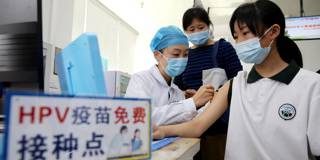Governments Must Step Up to Prevent Cervical Cancer
If all eligible people globally were vaccinated against HPV, we could eliminate nearly all cervical cancers, while reducing the incidence of several other cancers. To achieve this outcome, however, governments must design and implement effective vaccination campaigns which account for both logistical and social barriers.

SILVER SPRING – Jessica Pettway, a YouTube fashion and lifestyle influencer, died this month from cervical cancer at the age of 36. Her untimely death – and those of countless other women – probably could have been prevented, thanks to an effective vaccine for human papillomavirus (HPV), which is responsible for about 95% of cervical cancers. But not nearly enough people are getting it.